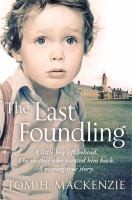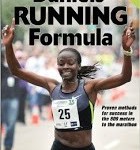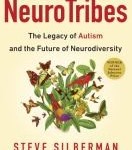Memoirs and autobiographies are among the most popular non-fiction genres. There a lots of subgenres in this field (my own personal favourite are food memoirs!) but lately I’ve been noticing a trend of what I’ll call the Family Secrets Autobiography. These books are emotional and often heart-wrenching stories of children secretly born out of wedlock to mothers who give them up due to religious or other social pressures. These secrets haunt them and their mothers throughout their lives, and eventually lead many to uncovering the painful past and reuniting with their birth families.
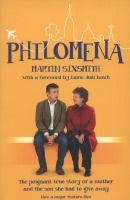 Philomena : a mother, her son and a fifty-year search by Martin Sixsmith was made into a movie in 2013 with Steve Coogan and Judi Dench.
Philomena : a mother, her son and a fifty-year search by Martin Sixsmith was made into a movie in 2013 with Steve Coogan and Judi Dench.
“When she became pregnant as a teenager in Ireland in 1952, Philomena Lee was sent to a convent to be looked after as a “fallen woman.” Then the nuns took her baby from her and sold him, like thousands of others, to America for adoption. Fifty years later, Philomena decided to find him.
Meanwhile, on the other side of the Atlantic, Philomena’s son was trying to find her. Renamed Michael Hess, he had become a leading lawyer in the first Bush administration, and he struggled to hide secrets that would jeopardize his career in the Republican Party and endanger his quest to find his mother.
A gripping exposé told with novelistic intrigue, Philomena pulls back the curtain on the role of the Catholic Church in forced adoptions and on the love between a mother and son who endured a lifelong separation.” Publisher.
 Secret child : 1950s Dublin – a young boy hidden from his family by Gordon Lewis and Andrew Crofts.
Secret child : 1950s Dublin – a young boy hidden from his family by Gordon Lewis and Andrew Crofts.
“Born an ‘unfortunate’ onto the rough streets of 1950s Dublin, this is the incredible true story of a young boy, a secret child born into a Catholic home for unmarried mothers in 1950s Dublin and a mother determined to keep her child, even if it meant hiding him from her own family and the rest of the world. Despite the poverty, hardship and isolation, the pride and hope of a community of women who banded together to raise their children would give this boy his chance to find his real family. A heartwarming tale of working class life in 1950s Dublin and 1960s London”–Publisher.
 My secret mother : two different lives, one heartbreaking secret : a memoir by Phyllis Whitsell.
My secret mother : two different lives, one heartbreaking secret : a memoir by Phyllis Whitsell.
“Phyllis was adopted aged 4. Despite being told that her parents had died of TB, she always believed that her mother was alive and, once old enough, was determined to track her down. While Phyllis was growing up in Birmingham, her mother Bridget, known locally as Tipperary Mary, a trouble maker with alcohol problems and a tendency to cause mayhem, was living the red light district of Birmingham. So when Phyllis finally caught up with Bridget, she had to shield her own family from the problems this would cause. Hiding behind her district nurse’s uniform, Phyllis, with no authority to do so, simply added Bridget to her daily district rounds; bathing her, taking her clean clothes, tending the wounds from her dysfunctional life and offering her what love she could. Phyllis cared for her mother in this way from 1981 to 1990 – without once telling Bridget that she was the little girl she had given away all those years ago.” Publisher.
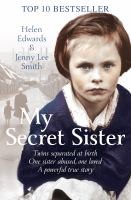 My secret sister by Helen Edwards & Jenny Lee Smith.
My secret sister by Helen Edwards & Jenny Lee Smith.
“Helen grew up in a pit village in Tyneside in the post-war years, with her gran, aunties and uncles living nearby. She felt safe with them, but they could not protect her from her neglectful mother and violent father. Behind closed doors, she suffered years of abuse. Sometimes she talked to an imaginary sister, the only one who understood her pain.
Jenny was adopted at six weeks and grew up in Newcastle. An only child, she knew she was loved, and with the support of her parents she went on to become a golfing champion, but still she felt that something was missing.
Neither woman knew of the other’s existence until, in her fifties, Jenny went looking for her birth family and found her sister Helen. Together they searched for the truth about Jenny’s birth – and uncovered a legacy of secrets that overturned everything Helen thought she knew about her family. Happily, they also discovered that they were not just sisters, they were twins.” – Publisher.
The institution, which had been providing care for deserted infants since the eighteenth century, allowed Jean to nurse her son for nine weeks, leaving her heartbroken when the time came to let him go.
But little Tom knew nothing of her love as he grew up in the Foundling Hospital – which, during years of the Second World War, was more like a prison than a children’s home. Locked in and subject to public canings and the sadistic whims of the older boys, there was no one to give him a hug, no one to wipe away his tears.
A true story of desertion and neglect, this is also a moving account of survival from one of the very last foundlings. It stands as a testament to the love that ultimately led a family back together.” Publisher.

